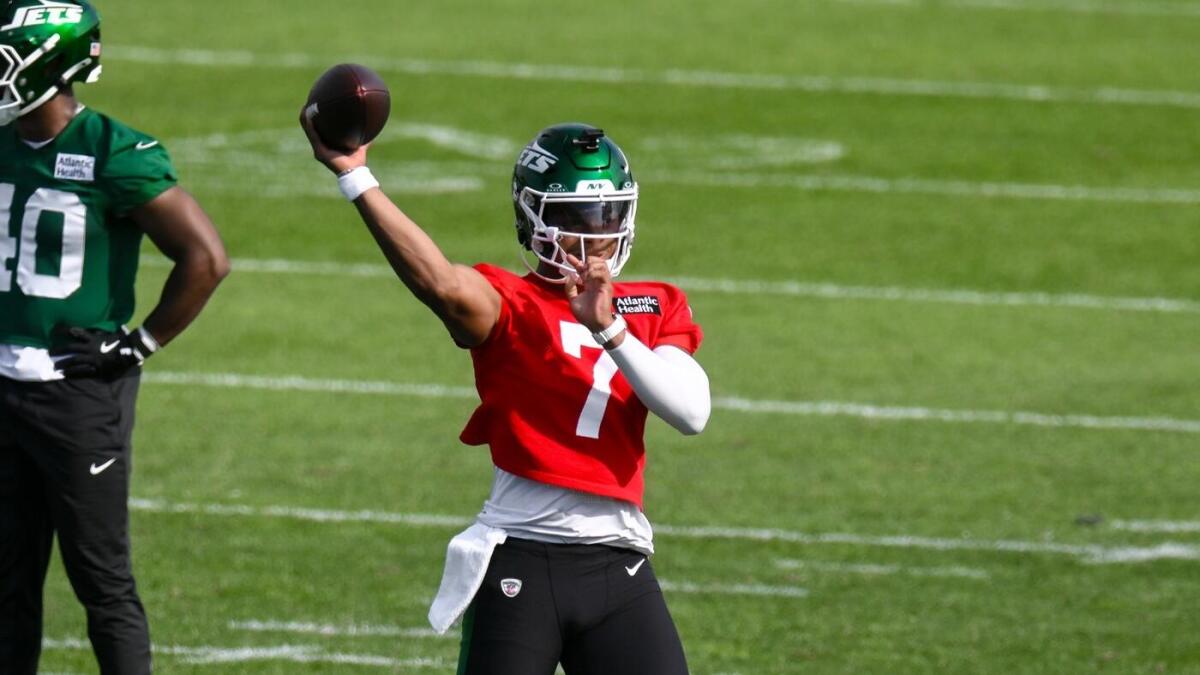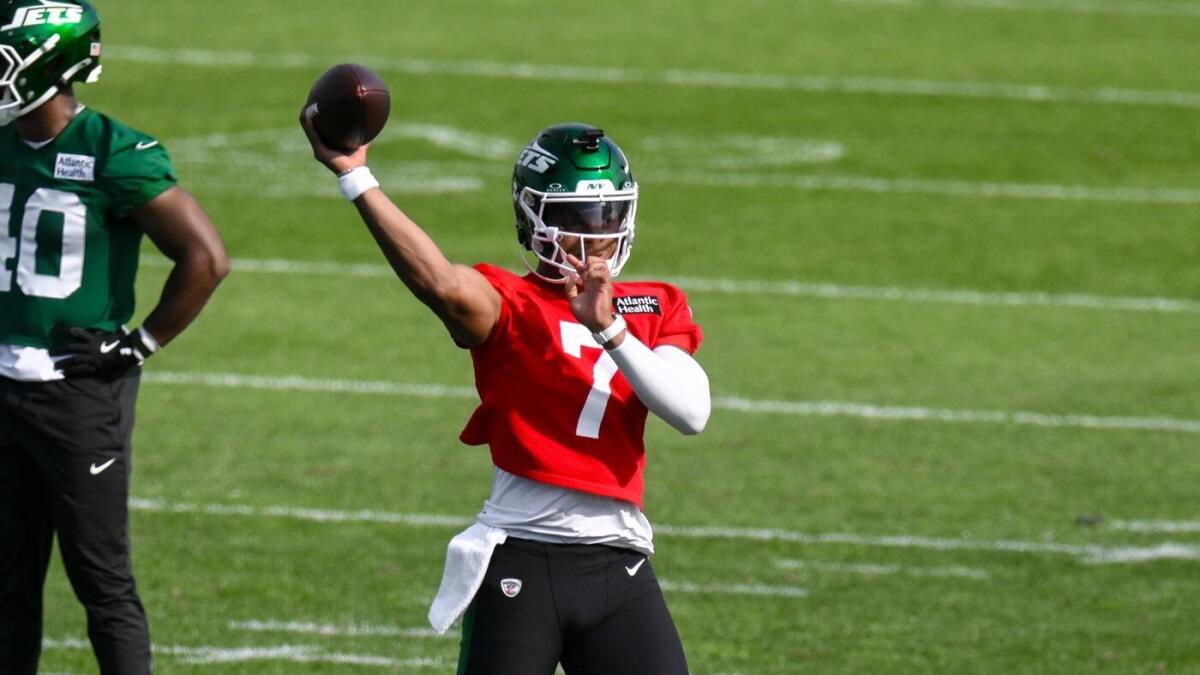The Fragility of Hope: Analyzing Justin Fields’ Injury and Its Implications for the Jets
A Moment of Collective Dread
The NFL is a league where fortunes can change in an instant. For the New York Jets, this reality became painfully clear when Justin Fields suffered a dislocated toe during a routine practice drill. The sight of the franchise quarterback being carted off the field sent shockwaves through the organization and its fanbase. The immediate reaction was one of collective dread, a visceral reminder of the fragility of hope in professional sports.
Fields is more than just a player for the Jets; he is the cornerstone of their offense, the linchpin of their Super Bowl aspirations. His injury, even if minor, represented a potential derailment of a carefully constructed plan. The Jets have invested heavily in Fields, both in terms of salary and strategic direction. An extended absence would have forced the team to scramble for solutions, potentially jeopardizing their chances in a stacked AFC.
The Rollercoaster of Uncertainty
The team’s initial response—labeling the injury as a dislocated toe and declaring Fields “day-to-day”—provided a measure of relief. However, the ambiguity lingered. In the NFL, “day-to-day” can mean anything from a swift return to a prolonged period of uncertainty. The media, ever eager to amplify drama, dissected every detail, fueling speculation and anxiety among fans.
This period of uncertainty highlighted the precarious nature of professional football. A seemingly minor injury, like a dislocated toe, can have major consequences. It underscored the importance of depth at the quarterback position, a lesson the Jets have learned the hard way in the past. The team’s ability to navigate this crisis will be a testament to their resilience and preparedness.
A Swift Return and Cautious Optimism
The news that Fields was back on the practice field the very next day brought a wave of collective relief. Seeing him jogging, even without fully participating in drills, was a powerful visual affirmation that the worst had been avoided. The narrative shifted from potential disaster to a story of resilience and good fortune.
However, the relief was tempered with caution. A dislocated toe, even if not severe, can still be a nagging issue. It can affect mobility, balance, and the ability to plant and throw with accuracy. The Jets will need to monitor Fields closely, ensuring that he doesn’t push himself too hard and risk aggravating the injury. His willingness to return quickly is commendable, but the team’s medical staff must prioritize his long-term health over short-term gains.
Lessons Learned and Paths Forward
This injury scare, though brief, served as a valuable reminder of the unpredictable nature of the NFL. It highlighted the importance of several key factors for the Jets’ success:
Depth at Quarterback
While Fields’ return is positive, the Jets need to ensure they have a capable backup quarterback ready to step in if needed. The team must continue to develop and evaluate their backup options to mitigate future risks. Having a reliable backup can provide a safety net, allowing the team to navigate unexpected setbacks without derailing their season.
Offensive Line Protection
Keeping Fields upright and healthy is paramount. The offensive line needs to be a fortress, preventing pressure and giving him the time he needs to make plays. Investment in the offensive line is an investment in Fields’s longevity and the team’s overall success. A strong offensive line can mitigate the risk of injuries and ensure that Fields remains effective throughout the season.
Prudent Management of Fields’s Health
The Jets’ coaching and medical staff must work in tandem to manage Fields’s workload and ensure he doesn’t overexert himself, especially in training camp. A conservative approach is crucial to prevent re-injury and ensure his availability throughout the season. The team must strike a balance between preparing Fields for the rigors of the regular season and protecting him from unnecessary risks.
Mental Fortitude
The incident also underscored the importance of mental toughness. Fields’s ability to bounce back quickly from the injury, both physically and mentally, is a testament to his character. He needs to maintain that resilience throughout the season, as setbacks are inevitable in the NFL. Mental fortitude is a crucial component of a quarterback’s success, and Fields’s ability to overcome adversity will be a key factor in the Jets’ journey.
A Resilient Flight
The Justin Fields toe injury served as a stark reminder of the fragility of hope and the importance of resilience in the NFL. The collective sigh of relief that followed his swift return to practice echoed the pent-up anxieties of a fanbase yearning for sustained success. While the immediate crisis has passed, the incident serves as a valuable lesson for the Jets organization.
Prioritizing depth at quarterback, bolstering offensive line protection, and adopting a conservative approach to player health will be paramount in ensuring Fields remains healthy and effective throughout the season. The Jets’ journey toward their Super Bowl aspirations hinges on Fields’s ability to lead, and his ability to lead depends on the team’s commitment to protecting their most valuable asset.
In the end, the NFL is a game of inches and moments. The Jets’ ability to navigate this crisis will be a testament to their resilience and preparedness. As they continue their journey, the team must remain vigilant, ensuring that they are ready for whatever challenges lie ahead. The road to the Super Bowl is fraught with obstacles, but with the right approach, the Jets can overcome them and achieve their ultimate goal.












